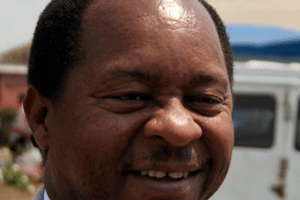
THERE is urgent need to expand Chitungwiza General Hospital to meet the increasing number of patients that throng the hospital for treatment, a senior official with the institution has said.
Report by our Staff
Addressing the media recently, the hospital’s chief executive officer Obediah Moyo said the institution’s catchment area was continually growing, presenting serious challenges to the hospital.
The hospital used to cater for Chitungwiza’s 1,5 million population, but now caters for patients from Harare, Epworth, Ruwa, Chihota, Seke Rural and Marondera in Mashonaland East Province.
“There is an urgent need to expand the hospital to meet the ever-increasing number of patients. A good number of health professionals are needed to help the hospital live up to its mandate of offering quality health to the community,” said Moyo.
He lamented the impact of erratic power supplies and water problems that are affecting the hospital’s ability to deliver quality services.
So far, the hospital has sunk boreholes and acquired generators in an effort to ensure smooth operations at the institution.
President Robert Mugabe, who officially opened the hospital in 1986, is expected to officially launch its jubilee celebrations on October 25 this year. The event coincides with a two-day exhibition by suppliers to the hospital, partners and other stakeholders.
- Chamisa under fire over US$120K donation
- Mavhunga puts DeMbare into Chibuku quarterfinals
- Pension funds bet on Cabora Bassa oilfields
- Councils defy govt fire tender directive
Keep Reading
The hospital will be celebrating 25 years of existence. Moyo said before the hospital commenced operations, Chitungwiza was served by four municipal clinics that referred patients to Harare Central and Parirenyatwa hospitals.
In its attempt to stay abreast with contemporary technological trends, the hospital last year embarked on a computerisation programme and also introduced an Internet Global Village for research purposes.
This was above providing general internet access to both staff and patients at the hospital.
The hospital was this year selected to run a pilot project for the e-governance programme. Training of staff on digital literacy is ongoing.
Moyo, however, said the hospital’s success were affected by political and economic developments that triggered the brain drain. Currently, the institution has a staff complement of around 1 300 employees.
Staff shortages have also been compounded by a huge number of patient turn-over and increased demand for HIV and Aids and tuberculosis services. The hospital’s on-site Opportunistic Infections Clinic caters for more than 14 000 patients that are on anti-retroviral drugs.
The institution has also managed to get services from expatriate professionals to boost its staff levels.











